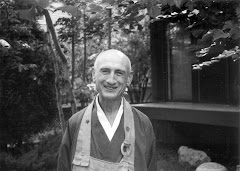Buddhism is a popular religion around the world and has millions of followers worldwide. But what makes it different from other religions? The way Buddhism adapts and grows into cultures is unique to the other religions. Buddhism in America is growing quite rapidly. There is something unique and different about it that makes its convert rate so high. According to the Pew Forum’s U.S. Religious Landscape Survey, Buddhism has recently climbed to the 3rd most practice religion in America, below only Christianity and Judaism. In a little more than a decade (1990-2001) Buddhism has grown 170%. Approximately 0.7% of Americans are Buddhist followed by 0.6% Islam and 0.4% Hindu. This growth to approximately two million Buddhist in the U.S. is due to the conversion of American citizens that are native-born to this nation. Many of these converts are white and have Christian or Jewish backgrounds. In fact, most Buddhist temples in America, although founded by mostly Asian Americans, attract fewer Asian-Americans than Caucasians.
These numbers aren’t typical of other religions so this website is hoping to answer the question: what makes Buddhism different and so popular to those not raised in the tradition of Buddhism? There must be something inherently attractive about Buddhism that makes so many people want to embrace it, especially Americans. This is an important question that should be answered. Perhaps Buddhism is doing something right that gives people the happiness and enlightenment they are looking for in their lives.
Religion is a touchy subject that many would prefer not to talk about but since it rules over countless hours of days of most of the world’s people’s lives it should be talked about. People should learn what else is out there and how the rest of the world understands and participates in religion. This is a job for the media, if done right. Here I will attempt to find out answers about Buddhism as objectively as possible. However, religion is not an objective thing. It is something personal and it is different for every individual. In a way there is no “Buddhism” or “Christianity” there are only Buddhist and Christians. I will focus on common themes within Buddhism to figure out exactly what makes it so attractive to those not raised with it.
Buddhism and America’s largest religion, Christianity, are very different. Buddhism is a much more individual level religion. This means that the focus is more on the individual. It preaches how to find peace within yourself in the here and now. Christianity focuses more on the afterlife and the eternal happiness you will be able to achieve later on. Christianity also has a lot of fear, mythology, and ancient dogma attached to it. Buddhism is a much looser religion that focuses on compassion, tolerance, and rationality. It emphasizes the growth of the self and how personal experiences all affect how one will develop. These types of ideals and messages seem to resonate within people. This is what some people have to say about Buddhism taken from the Speaking of Faith website by Krista Tippett: “I can remember having beliefs similar to Buddhism as a youngster (12-18 years old, I am now 29) before I had even read about Buddhism.” (Mallari Peace). “Even though I am not of the Buddhist faith, I found a lot of the ideas of Brother Thay to be very relevant and insightful” (Chelsea Tobin). “I feel very attached to the concepts present in mindfulness and the idea of compassionate understanding” (Michael Alvarez). These people are responding to an internet radio show that interviewed Thich Nhat Hanh, a famous Vietnamese Zen Buddhist monk, teacher, author, and peace activist. He is also one of the Interviewees on this website.
With Thich Nhat Hanh you will also find an interview with Philip Kapleau, the first American to create a Zen Buddhist training center. You will also learn about additional books and journals that will further your knowledge about Buddhism in America and Buddhism in general. There is information about Research Centers and organizations whose work, activities, and goals are relevant to Buddhism in America. There are also a few short movies that may give you a better understand about the topic and the rest of America’s opinions about it.
I hope that after exploring this website you have a better understanding of what Buddhism is and the ideals and messages it contains that make it so attractive to Americans across the country.
Subscribe to:
Post Comments (Atom)








No comments:
Post a Comment